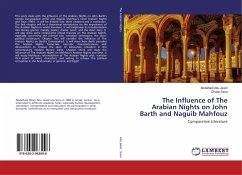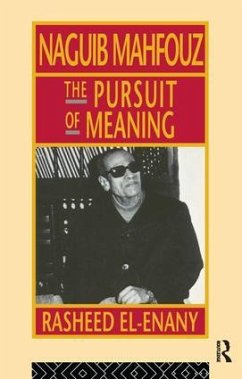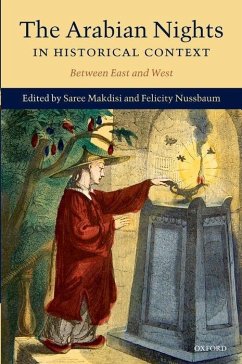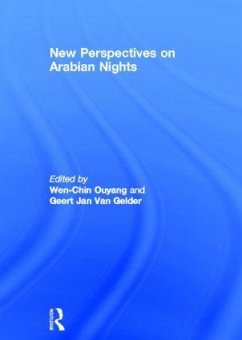
The Influence of The Arabian Nights on John Barth and Naguib Mahfouz
Comparative Literature
Versandkostenfrei!
Versandfertig in 6-10 Tagen
33,99 €
inkl. MwSt.

PAYBACK Punkte
17 °P sammeln!
This work deals with the influence of The Arabian Nights on John Barth's novella Dunyazadiad (1972) and Naguib Mahfouz's novel Arabian Nights and Days (1981). It will be divided into three chapters and a conclusion. The first chapter will be a theoretical introduction on the importance of The Arabian Nights in world literature. It will emphasize its transformation into literary genres, namely, poetry, drama, novel, and the short story. It will also show some comparative critical theories on The Arabian Nights, especially concerning the oriental tale, narration techniques, the socio-political c...
This work deals with the influence of The Arabian Nights on John Barth's novella Dunyazadiad (1972) and Naguib Mahfouz's novel Arabian Nights and Days (1981). It will be divided into three chapters and a conclusion. The first chapter will be a theoretical introduction on the importance of The Arabian Nights in world literature. It will emphasize its transformation into literary genres, namely, poetry, drama, novel, and the short story. It will also show some comparative critical theories on The Arabian Nights, especially concerning the oriental tale, narration techniques, the socio-political continuum. Chapter Two will consider the influence of The Arabian Nights on Barth's Dunyazadiad. It will show how Barth parodies The Arabian Nights' frame-tale, narrator, characterizations, and dénouement to critique the spirit of exhaustion prevalent in the contemporary modern literary scene. Chapter Three will study the influence of The Arabian Nights on Mahfouz's Arabian Nights and Days. It will study Mahfouz's reformulation of The Arabian Nights' plot, narrator (first point of view), characters, and setting to critique the political corruption in the Arab society, in general, and Egypt.












